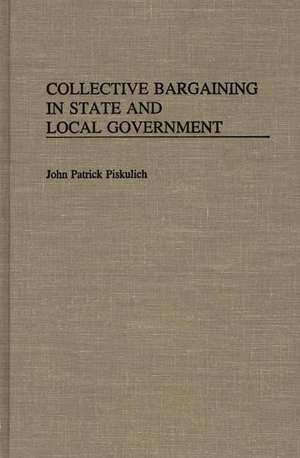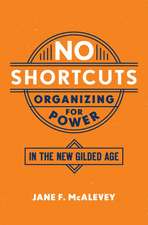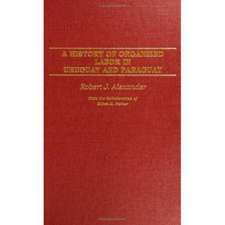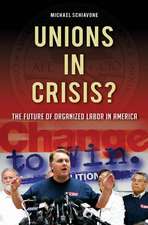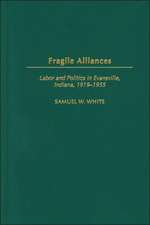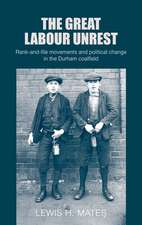Collective Bargaining in State and Local Government
Autor John Paick Piskulichen Limba Engleză Hardback – 29 ian 1992 – vârsta până la 17 ani
Preț: 363.13 lei
Preț vechi: 478.51 lei
-24% Nou
Puncte Express: 545
Preț estimativ în valută:
69.49€ • 75.46$ • 58.37£
69.49€ • 75.46$ • 58.37£
Carte tipărită la comandă
Livrare economică 22 aprilie-06 mai
Preluare comenzi: 021 569.72.76
Specificații
ISBN-13: 9780275940430
ISBN-10: 0275940438
Pagini: 144
Dimensiuni: 156 x 235 x 17 mm
Greutate: 0.41 kg
Ediția:New.
Editura: Bloomsbury Publishing
Colecția Praeger
Locul publicării:New York, United States
ISBN-10: 0275940438
Pagini: 144
Dimensiuni: 156 x 235 x 17 mm
Greutate: 0.41 kg
Ediția:New.
Editura: Bloomsbury Publishing
Colecția Praeger
Locul publicării:New York, United States
Notă biografică
JOHN PATRICK PISKULICH is Assistant Professor of Political Science at Oakland University. He was educated at the University of Missouri-Columbia and the State University of New York at Binghamton. The American Association of University Professors is the fifth (and only public) union of which he has been a member.
Cuprins
IntroductionThe Need for Further TestingWhat Governments Do: The History and Development of Public Sector Bargaining ProvisionsWhy They Do It: Antecedents of Public Sector Labor PolicyWhat Difference It Makes: The Impacts of PolicyAppendix: Additional Methodological NotesSummary and ConclusionsBibliographyIndex
